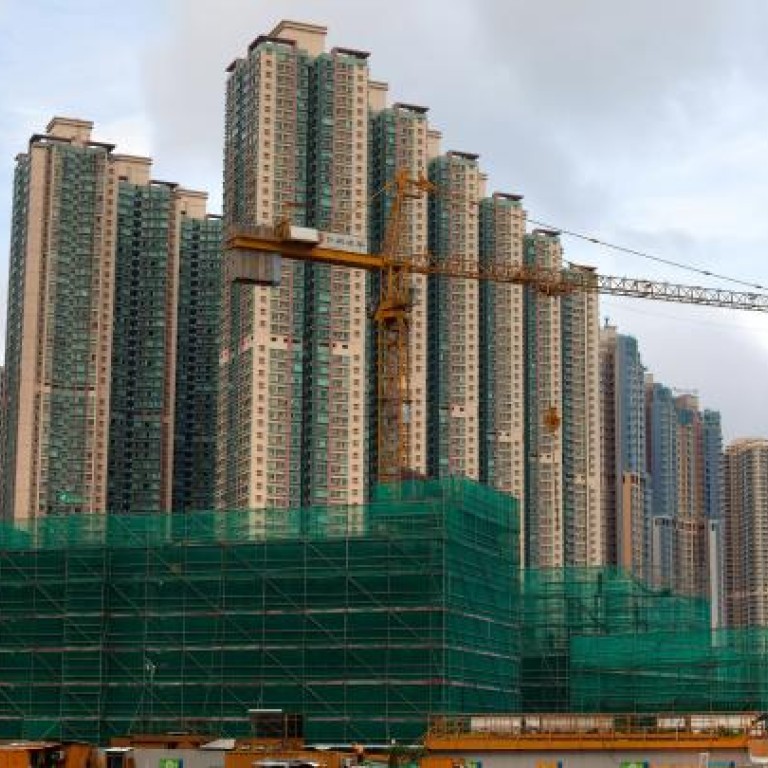
Does housing plan really care about trying to cool market?
Albert Cheng says many alternative plans exist to help increase public housing, yet the chief executive and his team are not tapping them
Chief Executive Leung Chun-ying won the election and got to where he is because of the support from Beijing's liaison office in Hong Kong. After six months in office, he has made no contributions to show for it. To be honest, he is merely a "paper general", which means he's all talk and no action.
Being a paper general, he will disappoint us with his empty promises on policies such as his long-term housing strategy. Most of us will remember the notorious plan to build 85,000 flats annually that he proposed to former chief executive Tung Chee-hwa in 1997.
During the chief executive election, Leung tried to rally public support by saying Hong Kong had an ample supply of land to satisfy local demand. He blamed the previous administration for dragging its feet in developing sufficient public housing.
He gave the impression that he would not side with the rich and powerful property developers. He even hinted that he would challenge their power on behalf of the people. All these won him favourable public opinion and support, especially from the middle class and professionals.
In fact, Leung only knows how to talk the talk but not walk the walk.
Bearing the brunt of Leung's conflicting policies will be the plan to allow qualified candidates to buy second-hand subsidised public flats without having to pay any land premium. This will not benefit the low-income homebuyers, and will undoubtedly push up prices and encourage market speculation. Increased market speculation will offset measures such as extra stamp duty aimed at curbing speculation and stabilising property prices.
Even less attractive residential areas such as the desolate Tuen Mun district have units demanding more than HK$10,000 per square foot.
Over the past six months under Leung's administration, the already high property prices in Hong Kong have continued to rise rather than cool down. Residential units are becoming even more unattainable for the masses.
Even parking spaces have become the target of speculation. One parking space can now cost up to HK$3 million, thanks to Leung and his so-called anti-speculation measures.
What's baffling is the way Leung's team members and advisers, who boast that they are highly trained professionals, can come up with such an ineffective housing policy.
First, the government appeared ready to scrap plans for a sports complex at Kai Tak. But, now, there is talk about relaxing the plot ratio control to meet the needs of housing and socioeconomic development, which totally disregards the city's long-term planning and development scheme.
Over the past five years, the government has been focusing on sustainable development, which emphasises striking a balance between development and conservation.
Former development secretary and current chief secretary Carrie Lam Cheng Yuet-ngor failed in her duty to promote this policy, but nonetheless, there is a consensus that this is the way forward.
Most Hong Kong people support sustainable development that focuses on the quality of life in the development process. No matter how urgent a development plan is, it should in no way override other policies and plans that have been put in place. We still need fairness, transparency and proper consultation in any policy implementation.
At present, the waiting list for the allocation of public housing units is too long. The number of applicants topped 200,000 in September.
Simply put, if Leung does keep his election pledge that he would shorten waiting time to three years or less, the government needs to build at least 70,000 public units per year over the next three years. This is impossible.
And if he really could achieve that, we are talking about bringing 70,000 public and 20,000 private units onto the market every year.
It would certainly have a negative impact on the property market, similar to the expected colossal effect of the plan of 85,000 units per year during the Tung administration.
Alternatively, Leung could rejuvenate industrial buildings and turn them into residential units. This will be a quick and easy way to resolve our housing shortage.
According to government figures, there are 1,400 industrial buildings in Hong Kong, about half of which are zoned for business or other uses. They could be converted as part of the solution for affordable housing.
They could also be rented out to popular supermarkets or restaurants or even used as offices. There are so many alternatives to solve our housing problem, but Leung seems to disregard these feasible choices. The only explanation is that he doesn't want to offend the property developers.

